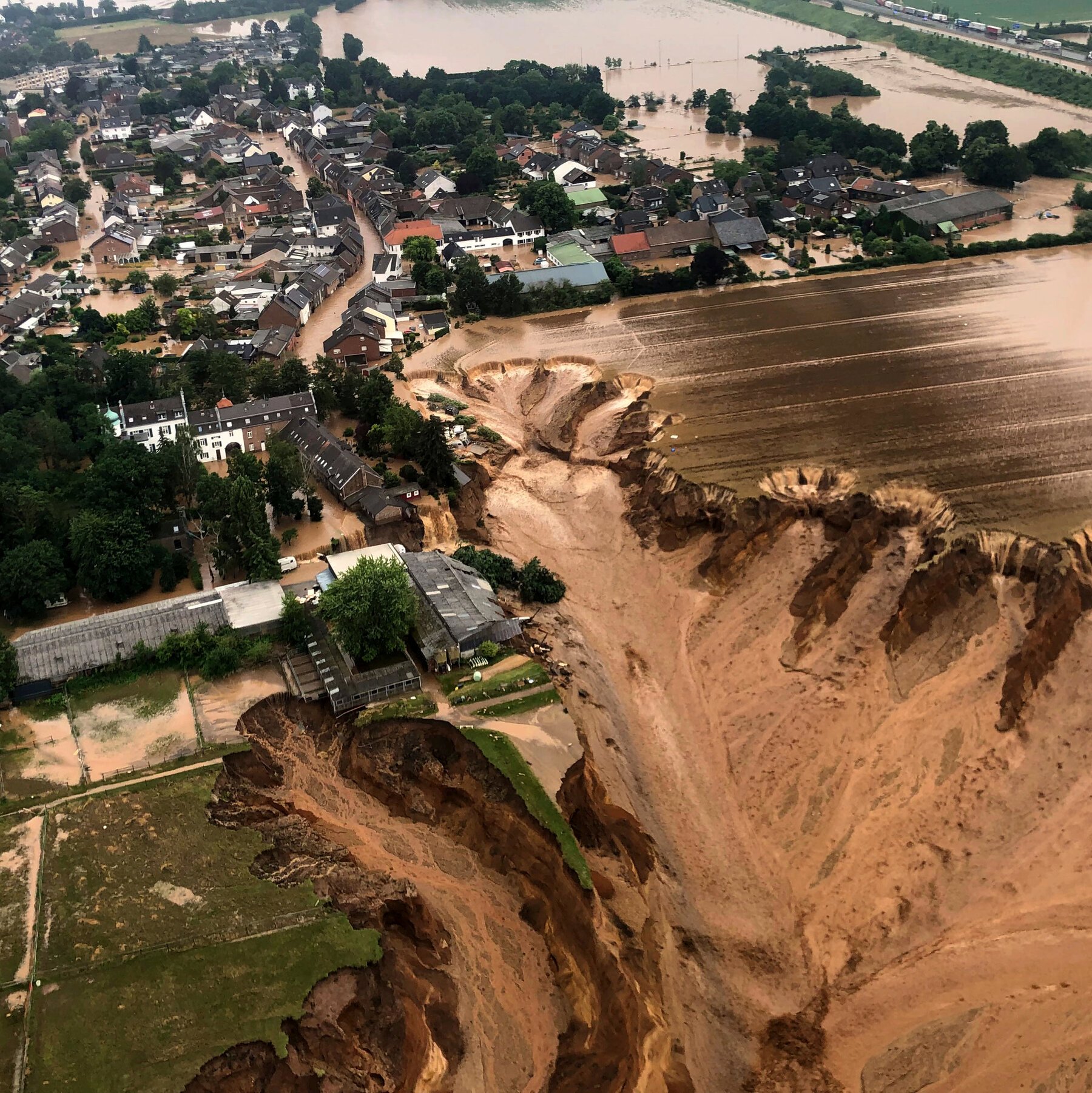The quest for attention is the invitation to care

Image 1: The Gulf of Mexico — a body of water, a freaking ocean — on fire after a pipeline rupture.
Image 2: a scene from the recent catastrophic flood in western Germany, due to persistent and heavy rainfall events. Germany is one of the 5 European countries — the rest are Netherlands, Belgium, Luxembourg, and Switzerland — affected in the climate emergency.
A Prius being washed away in a deluge caused by torrential rain in the scars of wildfires is the perfect metaphor for how individual consumer decisions are not enough to address climate change.
https://twitter.com/KOLDNews/status/1415457992011665409
“You don’t expect people to die in a flood in Germany. You expect it maybe in poor countries.” The normalisation of certain forms of loss and the denial of our fragile interdependence, in a single breath.
https://twitter.com/dwnews/status/1416535712892026882
I don’t know about you, but I could not yet recover from the first image. The ocean — the fucking ocean — was on fire and the little ships trying to put it out seemed like the perfect metaphor to describe 2020 onwards, and perhaps for the previous 60 years where we humans had been gradually destroying the only living planet we have ever had. There was a whole array of memes out there placing the texts, strategically or not, on the picture:
- forgoing iced coffee, not eating avocado, vs millennials unable to buy a house;
- Headspace app, yoga, vs burnout;
- steel straws, recycling, vs climate change
…plus the two tweets that follow after. All of them point to one thing — all the individual ways to extinguish a systemic fire, one that we know could not happen without a combination of multiple ways of collective action. Read a lot, subscribe to Hot Take (not a paid post, just a huge fan), send multiple emails to your MPs, find ways to send shit (not literal) to the UN, demand them to hold the corporations accountable, yeet the capitalist villains into the space and pretend to forget to bring them back.
The original tweet in last tweet I shared really made my blood boil. If you read it and could not feel the same way, I want to know … how could you not?
READING IN MY TABS
I’m a fan of how the public, especially the minority and the marginalised, subvert the affordances and spaces in tech, their platforms, and their governance designed not for them to finally advantage them, so here are some:
- Inside Cuba’s DIY Internet Revolution.
- From K-Pop stan to keyboard warrior: Meet the activists battling Myanmar’s military junta.
- Teens use “algorithmic folklore” to crack TikTok’s black box.
- How the pandemic led to the rise of WhatsApp “Auntiepreneurs” dishing out amazing Indian food.
- Everyone should decide how their digital data are used — not just tech companies. This is also part of the Feminist Principles of the Internet.
OTHER READS IN MY TABS
- With many of us stuck at home due to the lockdowns and had been turning to e-commerce, online shopping, working remotely from home etc. I have been thinking a lot about our digital consumption and its environmental impact. It is easy to discount the possible consuming, disastrous impacts due to the convenience and invisible footprint, but honestly that is not all true. This article brought this idea to attention – especially this line, “… by making things faster and easier, human nature is to consume more of it because it’s easier for us to do so. Anything that makes it easier for us to consume more resources makes us consume more resources.” (Emphasis mine). Related: it’s climate emergency, no more climate change, from now on, and how to live in its permanent state.
- “When Zelensky ran for the presidency in 2019, he promised to change the tone of Ukrainian politics, which continued to be mired incorruption and backroom deals. One of his key focuses was on using technology to improve both the reality of day-to-day life and Ukraine’s image abroad under the motto of a “state in a smartphone.” Within five years, all the services of the country’s paper-loving bureaucracy were to be transferred online. The flagship of this initiative was an app, Diia, which means both “the state and me” in Ukrainian, and what the Ukrainian state has not historically been known for: “action.” ” Inside Ukraine’s effort to replace bureaucracy with an app. Reminds of this book, Digital Party that I have been holding off and need to finish!
- What are COVID archivists keeping for tomorrow’s historians?
- This article on blue collar brilliance, “Much of physical work is social and interactive. Movers determining how to get an electric range down a flight of stairs require coordination, negotiation, planning, and the establishing of incremental goals. Words, gestures, and sometimes a quick pencil sketch are involved, if only to get the rhythm right. How important it is, then, to consider the social and communicative dimension of physical work, for it provides the medium for so much of work’s intelligence.” Whenever I was at the McDonald’s drive-through, I was always intrigued at how the attendants were able to multitask — I mean, taking your orders and dispensing the change to other customers at the same time! Not to mention, the waiters at the local mamak restaurant being able to remember our orders without jotting them down and almost always got the orders right!
- “To evoke magic is not only to provide an alternative regime of causal relations, but also to minimize attention to the methods and resources required to carry out a particular effect. Magic denies an accounting of what went into making something work, or that it required work at all.” AI is not magic.
- “In day to day language, paying attention is often interchangeable with taking care. To announce that the stairs are potentially dangerous, you say “be careful going down the stairs” or “pay attention to the stairs.” The quest for attention is an invitation to care.“
- “Officer, no ambulance ever came. It took a long time to cover my body. There are politics to death, and here politics performs its own autopsies.”
RESOURCES AND TOOLKITS
- Talking to kids about climate change.
- A compilation of papers on Malaysia’s digital policies from September 2020 to April 2021, released by Khazanah Research Institute (via The Starting Block).
- Participants from the policy design workshops produced 11 prototypes that can help create safer online experiences for women and tackle OGBV.
- Sounds of the forest.
STATUS BOARD
- Reading: P. Djèlí Clark’s debut novel A Master of Djinn — I have been a longtime fan of his short stories The Haunting of Tram Car 015 and A Dead Djinn in Cairo; and Cinzia Arruzza, Tithi Bhattacharya, and Nancy Fraser’s Feminism for the 99%.
- Listening: Never Have I Ever official playlist.
- Watching: This Japanese documentary, The Phone of the Wind. Survivors and loved ones of the 2011 Tōhoku earthquake and tsunami would go to this phone booth to have conversations with their deceased loved ones. It’s a heartbreaking yet comforting manifestation of grief. Be ready with tissues.
- Food & Drink: Tomorrow is Eid ul-Adha, and we are sent some ketupat palas and rendang (if you ever want to try making crispy rendang) for tomorrow’s celebration.
(Psst, here’s a little surprise if you read this far.)

